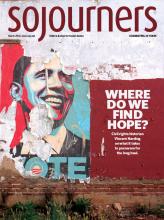FOR A PERSON from the educated middle class who is going to pieces spiritually from lack of employment, often the hardest thing is maintaining appearances. Practically every cent and reserve of dignity is diverted into the illusion of gentility. Your clothes, technology, home, and public habits cannot be shabby. If a professional acquaintance suggests an expensive lunch, there is no avoiding it. If he or she says, “I’ll just message you when I’m leaving for the restaurant,” you must possess the proper gadget for receiving messages while in transit, for you can’t await word on your home computer when the acquaintance expects to meet 10 minutes later.
Accompanying this financial shadow play is the anguish of what to call yourself. Diplomas, publications, and authenticity of intellect don’t define your status—credibility comes from your institutional base. Establishing this base is increasingly difficult. Look at the appellations people use when they publish little essays and commentaries: There are an astonishing number of fellows, advisers, experts, strategists, associates, analysts, and specialists, not to speak of freelancers and of course consultants, whose titles are not linked to any institution. Despite privileged backgrounds, this group’s privilege is now almost entirely theoretical. Lack of property, land, stock, and savings point to the decline of their class and status. Still, their most sickening fear comes from finding themselves marooned outside institutions, with little hope of climbing back in and no skills on which to rely when their ideas and insights are of no monetary value.
Read the Full Article
